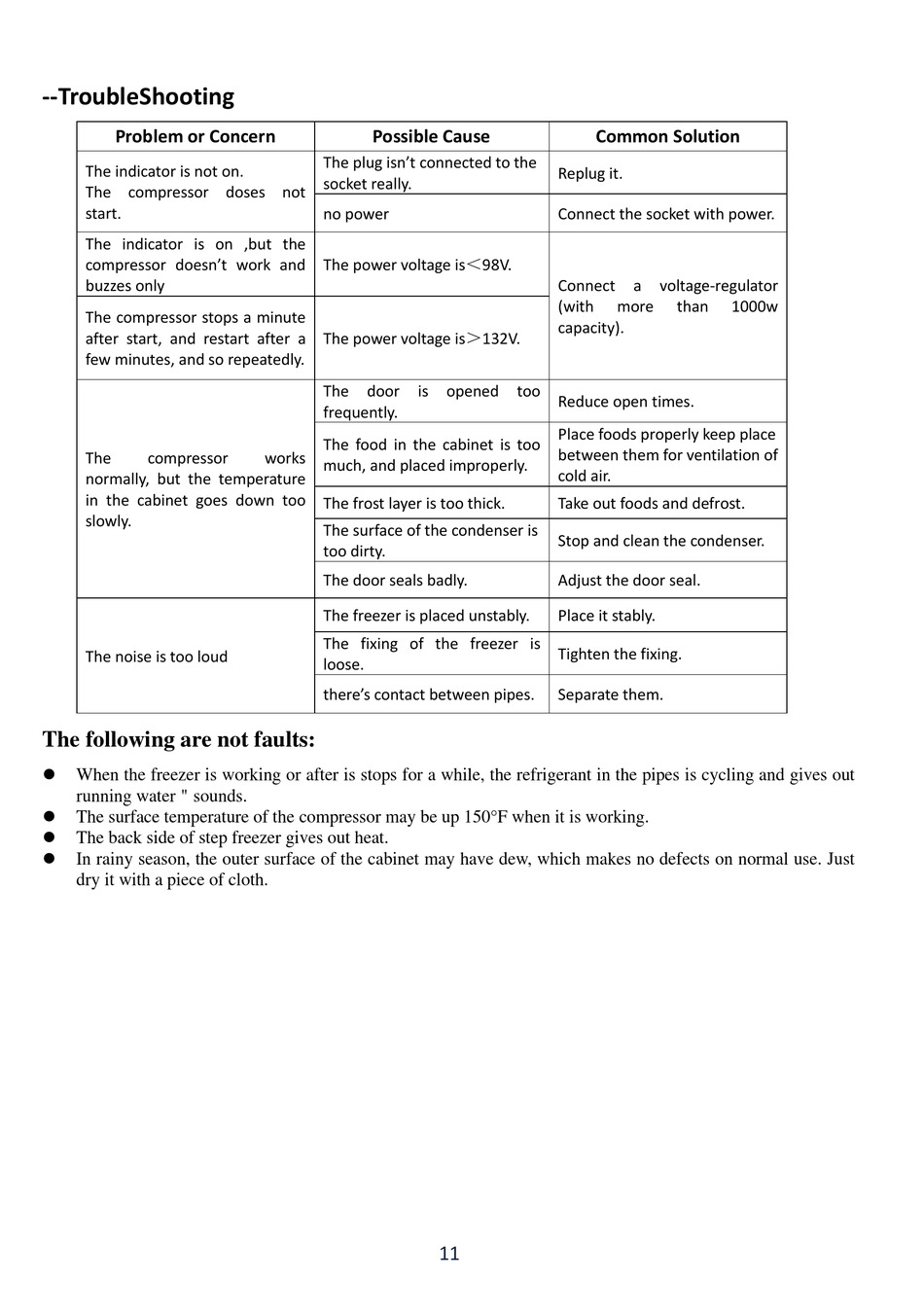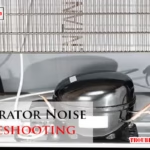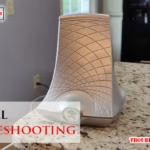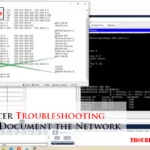Are you frustrated with your Atosa refrigerator not working as it should? Whether it’s not cooling properly or making strange noises, these issues can throw a wrench in your daily routine and even impact your business.
You’re not alone in facing these challenges, and the good news is that there are simple solutions to many common problems. In this guide, we’ll dive into practical troubleshooting steps to get your Atosa refrigerator back on track. You deserve peace of mind knowing that your appliance is running smoothly, so let’s explore how you can quickly and effectively address these issues.
Stick with us, and you’ll be well on your way to resolving your refrigerator woes.

Common Issues
Atosa refrigerators often face issues like temperature fluctuations and noisy operation. Misaligned doors can affect cooling efficiency. Regular maintenance helps prevent common problems and ensures reliable performance.
Experiencing issues with your Atosa refrigerator can be frustrating, especially when you’re unsure about what’s causing the problem. Understanding common issues can help you address them quickly and efficiently. Let’s explore some of the frequent troubles you might encounter with your Atosa refrigerator.
Temperature Fluctuations
One of the most common issues with refrigerators is temperature fluctuations. Have you ever opened your fridge only to find that your milk has frozen or your vegetables are wilting? This can happen when the thermostat settings are incorrect or if the door seal isn’t tight. Check if the thermostat is set to the recommended temperature, usually between 37°F and 40°F for the fridge and 0°F for the freezer. A faulty door seal can let cold air escape, causing the compressor to work harder. Inspect the seal for cracks or gaps. If it feels loose, it might be time to replace it. Simple fixes like these can often resolve significant temperature problems.
Unusual Noises
Hearing strange noises from your refrigerator can be unsettling. A humming sound might indicate the compressor is working overtime. Have you recently noticed a clanking or banging noise? It could be the fan hitting something inside or an item vibrating against another. Check the back of the fridge for any loose components. Make sure nothing is obstructing the fan or other moving parts. Sometimes, simply rearranging items inside the fridge can stop the noise. Listening carefully to your fridge can often give you clues about what needs fixing.
Leaking Water
Finding water pooling under your fridge can be alarming. Water leaks are often due to a clogged defrost drain or a broken water line. Is there water collecting inside the fridge or along the bottom shelf? This might indicate a blocked defrost drain. To address this, try clearing the drain with a mix of warm water and baking soda. If the problem persists, inspect the water lines for any visible damage or leaks. Addressing the root cause of leaks can help prevent water damage to your kitchen floor. Is your Atosa refrigerator experiencing any of these issues? Understanding these common problems can empower you to take action before things escalate.
Temperature Problems
Experiencing temperature issues with an Atosa refrigerator can disrupt its efficiency. Check the thermostat settings and ensure proper airflow. Regular maintenance helps maintain ideal cooling levels.
Temperature problems with your Atosa refrigerator can be a real headache, especially when you’re unsure of the cause. It’s frustrating when your refrigerator doesn’t maintain the right temperature, potentially spoiling your food or affecting the cooling efficiency. But don’t worry, these issues can often be fixed with a few simple checks and adjustments. Let’s dive into the common causes and solutions for temperature problems in your Atosa refrigerator.
Setting Adjustments
First, you need to ensure that the temperature settings are correctly adjusted. The wrong setting might cause your fridge to be too warm or too cold. Check the control panel—usually located inside the fridge—and set it to the recommended level. If you’ve recently added a lot of groceries, it might take a while for the temperature to stabilize. Consider if the setting was accidentally changed by someone else in your household.
Thermostat Inspection
A faulty thermostat can wreak havoc on your refrigerator’s temperature. You should inspect the thermostat to ensure it’s functioning properly. If your fridge isn’t cooling as it should, try adjusting the thermostat slightly to see if it responds. If there’s no change, it might be time to replace the thermostat. Have you noticed unusual noises or inconsistent cooling patterns? These could be signs that your thermostat needs a closer look.
Blocked Air Vents
Sometimes, temperature problems are due to blocked air vents. Check if food items are blocking the vents, preventing proper air circulation. It’s a common issue, especially after a big grocery run when you’re trying to fit everything in. Make sure there’s enough space for air to flow freely. How often do you rearrange your fridge? It might be time to organize it better to prevent future issues. Temperature issues can usually be resolved with these straightforward steps. Have you faced temperature problems with your Atosa fridge before? What other solutions have worked for you? Let us know in the comments!
Noise Troubleshooting
Experiencing noise issues with your Atosa refrigerator can be frustrating. Identify common causes like loose components or faulty fans. Regular maintenance and timely checks can help ensure smooth operation and reduce unwanted sounds.
Is your Atosa refrigerator making odd noises? This can be both annoying and concerning. Noise is often a sign that something needs attention. Understanding these sounds can save you from costly repairs and ensure your fridge runs smoothly. Let’s dive into some common noise issues and how to troubleshoot them effectively.
Compressor Sounds
The compressor is the heart of your refrigerator, but sometimes it can make unusual sounds. A humming noise is normal, but if you hear knocking or loud buzzing, it might be struggling. Check if the compressor is running too hot by touching it cautiously. If it is, clean the coils to improve airflow and efficiency. You might also want to check if the fridge is too full, causing it to work harder.
Fan Issues
Fans help circulate cool air throughout your fridge, but they can sometimes be noisy. A whirring or rattling sound could mean the fan blades are obstructed. Turn off the power and inspect the fan for any debris or ice buildup. Gently clean the blades and ensure they spin freely. If the noise persists, the fan motor might need replacement.
Loose Parts
Loose parts inside your fridge can create a cacophony of clattering noises. This often happens during transportation or after heavy use. Inspect shelves and bins to ensure they’re securely in place. Tighten any loose screws or bolts. You can also check the back of the fridge to see if any components have shifted. If you hear a rattling sound, it might be as simple as a bottle or jar vibrating against something else. Have you ever had a moment when you noticed a strange noise in the middle of the night? It can be disconcerting, but often the solution is simpler than you think. Taking a few minutes to troubleshoot can bring peace of mind and quiet back to your kitchen. Is your fridge still noisy after these checks? It might be time to call a professional. But now, you’re equipped with the knowledge to identify potential issues and have a more informed conversation with your technician.

Water Leakage Solutions
Troubleshooting water leakage in an Atosa refrigerator involves checking seals and drainage systems. Inspect door gaskets for damage. Ensure the drain tube is clear to prevent overflow. Simple maintenance can often resolve issues and keep your refrigerator running smoothly.
Water leakage from your Atosa refrigerator can be more than just an inconvenience; it can lead to bigger issues if not addressed promptly. But don’t worry, you’re not alone in this. Many homeowners face this challenge, and there are straightforward solutions to tackle it. Let’s dive into some practical fixes that you can easily implement.
Drain Line Blockages
One of the most common culprits behind refrigerator leaks is a clogged drain line. This line is responsible for channeling excess water to the drain pan. When blocked, water has nowhere to go but out onto your kitchen floor. Check your drain line for any visible obstructions. A simple way to clear it is using a mixture of warm water and baking soda. Pour it gently into the drain hole to dissolve any gunk, allowing water to flow smoothly again.
Door Seal Integrity
The refrigerator’s door seal, or gasket, might not seem significant, but it plays a crucial role in keeping moisture at bay. If it’s worn out or loose, warm air can seep in, leading to condensation and leaks. Examine the door seal for cracks or tears. A quick test is to close the door on a dollar bill—if you can pull it out easily, the seal isn’t tight enough. Replacing a damaged seal can be a simple DIY task, or you can contact a professional to ensure a snug fit.
Humidity Control
Did you know that the humidity in your kitchen can affect your refrigerator’s performance? High humidity levels can cause excess moisture to accumulate inside, leading to potential leaks. Ensure your refrigerator’s humidity control settings are optimized. Most models have adjustable settings to help manage moisture levels. Keeping your kitchen well-ventilated can also make a significant difference. Consider using a dehumidifier if your area is naturally humid. Have you ever encountered a leaky refrigerator? Addressing these small issues can prevent bigger headaches down the road. Share your experiences or tips in the comments, and let’s help each other maintain a leak-free kitchen!
Maintenance Tips
Discover essential tips for maintaining your Atosa refrigerator efficiently. Check door seals regularly for wear to ensure energy efficiency. Clean condenser coils to prevent overheating and maintain consistent cooling performance.
Proper maintenance can significantly extend the lifespan of your Atosa refrigerator and keep it running efficiently. Many issues arise from neglecting regular upkeep, which can lead to avoidable repairs or replacements. By focusing on a few key areas, you can ensure your refrigerator remains in top condition.
Regular Cleaning
Regular cleaning is crucial for maintaining your Atosa refrigerator. Wipe down the interior surfaces with a mild detergent and warm water at least once a month. Don’t forget the shelves and drawers, which often harbor spills and crumbs. Dust can accumulate on the condenser coils, impacting efficiency. Clean these coils every six months with a vacuum or a coil brush. A quick 15-minute cleaning session can save you from higher energy bills and costly repairs.
Checking Door Seals
Door seals, or gaskets, are vital for maintaining the refrigerator’s internal temperature. A damaged seal can cause the fridge to work harder, leading to increased energy consumption and wear on the motor. Check your door seals every few months by closing the door on a piece of paper. If you can pull the paper out easily, it’s time to replace the seal. Replacing a faulty seal is simple and can prevent bigger issues down the line.
Monitoring Temperature
Keeping an eye on the temperature settings is key to preserving your food and preventing spoilage. Aim for a fridge temperature between 37°F and 40°F, and a freezer setting at 0°F. Invest in a refrigerator thermometer to ensure your settings are accurate. If you notice fluctuations, it may be a sign of a bigger issue, like a faulty thermostat or a blocked vent. By focusing on these maintenance tips, you can keep your Atosa refrigerator running smoothly. What steps will you take today to give your fridge the care it deserves?

Professional Help
Atosa refrigerators are known for durability and performance. But issues can arise. When problems persist, professional help is essential. Technicians have the expertise to handle complex issues. This ensures your refrigerator functions optimally.
Understanding when to seek expert help can save time and money. It also prevents further damage to your appliance.
When To Contact Support
Strange noises or leaks require immediate attention. Call support if the refrigerator fails to cool. Frequent power cycling or error codes also need professional help. These issues can indicate deeper problems.
Professionals have the tools and knowledge to diagnose issues. They can restore your appliance to full function. Ignoring these signs can lead to costly repairs.
Warranty Considerations
Check your warranty before calling a technician. Atosa often covers parts and labor for certain periods. This can save money on repairs. Ensure you understand the terms and conditions.
Some repairs might void the warranty if not handled properly. It’s crucial to use authorized service providers. This maintains the validity of your warranty.
Frequently Asked Questions
How Do I Reset My Atosa Refrigerator?
Locate the reset button inside the fridge. Press it for 3 seconds. Wait for the unit to restart.
Why Is My Atosa Fridge Not Cooling?
Check if the thermostat is set properly. Ensure the vents aren’t blocked. Clean the condenser coils regularly.
What Causes Atosa Refrigerator Leaks?
Inspect door seals for damage. Ensure the drain pan is not overflowing. Check water supply lines for leaks.
How Can I Fix Atosa Fridge Noise Issues?
Ensure the fridge is level. Tighten loose parts. Check for items vibrating inside. Inspect the evaporator fan.
What Should I Do If My Atosa Fridge Keeps Cycling?
Check the thermostat setting. Clean condenser coils. Ensure good airflow around the fridge. Consider professional service.
Conclusion
Troubleshooting your Atosa refrigerator is simpler than you think. Start by checking basic issues. Power connections and settings often solve problems. Listen for unusual noises. Clean vents regularly for better performance. If issues persist, consult a professional. Regular maintenance prevents future troubles.
Keep your refrigerator working efficiently. A little care goes a long way. Enjoy fresh food and peace of mind. Your kitchen relies on a dependable fridge. Solve small problems swiftly. Stay cool and organized with a well-maintained Atosa refrigerator.






